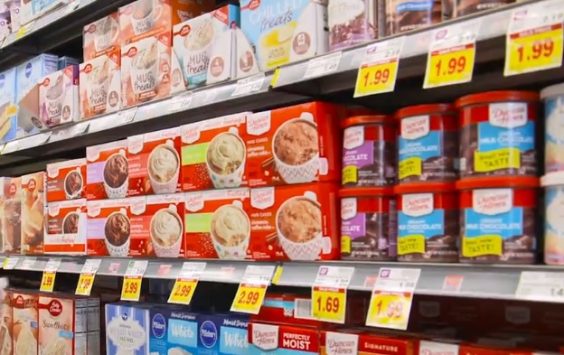
Wait, are the deals going to get better or worse in the months ahead? Are there going to be more coupons and promotions, or fewer?
It apparently depends on whom you ask – and whose advice retailers and manufacturers decide to follow.
It was just last week that one industry leader declared that “coupon programs and saving opportunities have become more important than ever” during the coronavirus crisis and the accompanying economic downturn. But now another industry group is advising the opposite, urging brands to “fight their instincts to drop prices.”
That guidance comes from the market research firm IRI, in a new report that advises manufacturers how to “Recession-Proof Your Business.” Their top piece of advice? “When not absolutely necessary, cutting price can have disastrous effects.”
IRI based its guidance on what it learned after the last recession in 2008 and 2009. “Entering a recession, manufacturers want to be considered an affordable choice,” its report states. So “price cuts and promotions have historically been go-to tactics during a recession.”
After all, IRI’s previous research found that cash-strapped shoppers during the last recession “traded down in search of value, hunted deals by combing retailers’ circulars, clipped coupons and searched the store for the best deals.” So it would stand to reason that brands providing the best deals would sell the most products.
But cutting prices, printing up coupons and offering deals can backfire, IRI warns.
For one thing, “frequent promotions can erode the reference price shoppers use when evaluating if the price is a good deal,” IRI explains. In other words, if you know that a product is often on sale or there is always a coupon available, you start to feel like you’re being ripped off if you ever have to pay full price. If brands train shoppers to expect deals on their products during a recession, then “when the recovery comes, manufacturers that took price cuts may see their brands relegated to second tier status,” IRI warns.
Instead, IRI’s research shows that, during a recession, the vast majority of shoppers focus on the “total value of an offering,” like quality, effectiveness, health benefits and enjoyment level – in addition to, not solely due to, pricing and discounting. So, “before cutting price,” IRI suggests, “manufacturers should investigate their total value proposition, capitalizing on other levers to appear as a stronger deal versus the competition,” by, say, highlighting their products’ benefits instead of cutting the price.
But keeping prices up, in order to avoid sacrificing profits for sales and training shoppers to expect deals, is easier said than done. “We’re already seeing price inflation of food items, similar to what’s been seen in past recessions,” IRI’s report acknowledges. “Manufacturers will see pressure from both shoppers and retailers to cut prices.”
And that could be true now more than ever, because this recession is already very different. Retailers are particularly feeling the pinch during the coronavirus crisis, as sales are soaring but so are their operating costs – many stores have been hiring extra employees, spending time and money cleaning and retrofitting stores for social distancing, and devoting more resources to fulfill online orders. So they’re likely to lean on manufacturers to cut their prices and increase their funding for promotions, so stores can attract more shoppers, get them to spend more, and help offset the retailers’ extra expenditures.
IRI is advising manufacturers to stand firm, to avoid giving in to pressure to offer deep discounts, and to “actively showcase where desired price cuts will hurt the retailer’s business.”
This is all rather different advice than Inmar Intelligence offered grocers and consumer packaged goods (CPG) companies last week. “Now is not the time for CPGs and food retailers to back away from promotional activity,” Inmar Director of Business Intelligence Charlie Gage said. “In fact, there is an even greater need to provide savings options for consumers to have them keep coming back for their essential items.”
It’s worth noting that Inmar operates the digital coupon programs for several retailers, and processes billions of paper coupons a year, so it has a vested interest in making sure that coupons remain plentiful. Similarly, IRI just so happens to offer “pricing optimization” services for manufacturers, to help them “determine ideal prices” for their products, whether it’s during a pandemic, a recession or any other time.
So when brands consider this conflicting advice, they’ll need to consider the source. And hopefully they’ll consider the shoppers, who have enough to worry about these days without being forced to buy all of their groceries at full price.
Image source: Kroger
















Inmar’s statements resonate as true for me. The IRI statements are longer in an attempt to justify high prices and basically a story they’re telling themselves that doesn’t match real consumers.
I have no plans to return to shopping beyond eggs and a few other perishables until promotions are back and I feel safe enough to go to the stores. This has been a great opportunity to make room in the pantry, fridge, and freezer.